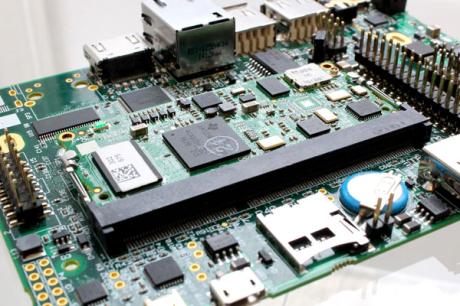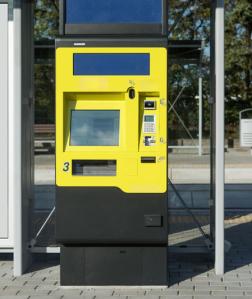The brains behind every display based system is the CPU. It not only creates the data that is presented, but drives the I/O peripherals, display and touchscreen. But what do you need to consider when choosing the right CPU for your project - for example do you choose a complete Single Board Computer (SBC) or a stripped back core module (COM)? This is usually a trade-off between time to market and flexibility.
What is the difference between a Single Board Computer and a Core Module?
A single board computer is a ready to go instant platform that ships with all the drivers needed in the form of a board support package (BSP). A core module (also known as a computer-on-module (COM) or system on module (SOM) is half-way between an SBC and a discrete microprocessor IC. It offers more flexibility than an SBC, without the much higher development effort associated with a discrete solution.

What are the benefits of a Single Board Computer?
Clearly an SBC saves a lot of integration effort and development time. It comes out of the box as a fully working solution that just needs to be loaded with the application software and interfaced to the display. The issues we run into most often are size and I/O. Each manufacturer offers a limited range of SBC options with different and fixed permutations of I/Os, size and features. So, it is a matter of selecting the most suitable option from the range – you can’t customise the board in accordance with the needs of the application.
What are the benefits of a Core Module?
The advantage of the core module path is that you can design the carrier board exactly according to your size and configuration requirements, and then connect an SoM to it. Clearly this will take time and design effort, but will allow you to create a board with exactly the I/O that you need for your design and of the right form-factor. There are companies, like us, who can undertake this work for you. In fact we have developed their own range of baseboards with interchangeable core modules,, you can start your development on these platforms, work on the software and in the meantime either develop your own baseboard or contact us to help.
What are the key considerations in choosing a single board computer or core module?
The decision to choose an SBC or a COM depends on the specific project requirements and sales volume. Whichever route you opt for, the most important specifications are:
- The interfaces provided for sensors and actuators - How many are there, and are they the right ones
- The connectivity options for the network and Internet.
- Support – which can make a big difference to how long it takes to get your project up and running:
- Is there a well-supported and robust board support package – how much other help is available for the software developer?
Other things matter too:
- Temperature range – will it work in hot/cold conditions?
- Longevity of supply – will you still be able to get it in ten years’ time?
- Power – especially if it needs to run from a solar panel or battery
Last by no means least is the cost. If a board is to be sent out into the field in any volume, budget is always going to be a factor. Choosing a good supplier with a partnership mentality can make a huge difference to your time to market.


